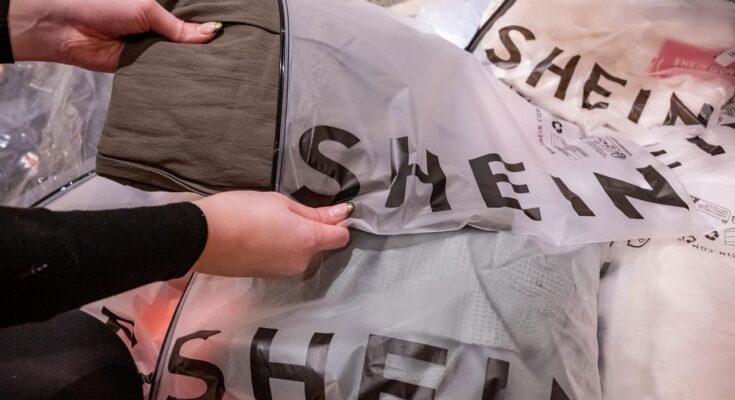Environmental organization Greenpeace found dangerous substances in product samples from online retailer Shein. Children’s clothing was also affected.
Environmental organization Greenpeace has found dangerous chemicals in clothing samples from online retailer Shein. Greenpeace announced that chemicals were found in 18 of 56 clothing items examined, some of which “significantly” exceeded the limit values of the European Chemicals Regulations. This also includes children’s clothing.
Based on the information they obtained, Greenpeace detected, among other things, phthalate plasticizers and water and dirt repellent chemicals, PFAS. PFAS are called forever chemicals because they are not biodegradable and accumulate in nature and in the human body. Research shows that some chemicals can damage the human liver and immune system, reduce the effectiveness of vaccinations and fertility, and cause cancer.
Greenpeace explains that workers and the environment in producing countries are the parties most affected. However, consumers also come into contact with these chemicals through skin contact, sweat, or inhaled fibers. When washed and thrown away, these substances will be carried further into rivers, soil and the food chain.
Clothes withdrawn from sale
Shein said the company takes product safety seriously and is committed to providing safe and compliant products to its customers. Shein has not been able to verify Greenpeace’s test results. As a precaution, these items will be withdrawn from global sale. “In parallel, we are examining this issue,” said Shein’s spokesman. He emphasized that Shein works with internationally recognized testing centers.
The company criticized the fact that some of the products criticized by Greenpeace “are still available on other major e-commerce platforms today.” “This raises important questions about why these concerns were publicly raised with Shein before basic information was provided to us, or consistently communicated to a broader industry audience,” a company spokesperson said.
Test from Stiftung Warentest
This is the second time in a short time that Shein has had to face such accusations: It was only in late October that Stiftung Warentest complained of dangerous substances, technical defects or mislabeling in 110 of the 162 products tested. “These supposedly cheap offerings are sometimes toxic, highly dangerous and do not meet applicable EU safety standards,” said Florian Ostermann of Stiftung Warentest WDR.
In addition to minor defects like missing seals, consumer advocates also found toxic pollutants. “For example, we have a necklace whose pendant is almost entirely made of cadmium,” Ostermann told WDR. Cadmium is a toxic heavy metal that is carcinogenic.
On the Stiftung Warentest homepage, consumers can search for defective products using the item number. Consumer advocates recommend discarding these products. In addition to chemicals, ten of the 27 chargers tested also got very hot when charging. In the worst case scenario, this could cause a fire, according to Stiftung Warentest.
Resistance also occurred in other EU countries
Shein is already under huge pressure in France from the government, which has initiated several proceedings against the online platform and threatened to block the site in France. In a spectacular operation at Paris airport, 200,000 Shein shipments were recently inspected. According to a statement from the Ministry of Economy, eight out of ten articles were found to be non-compliant. The shipments included unauthorized cosmetics, dangerous toys and damaged household appliances.
In addition, resistance to cheap platforms is increasing there. Twelve French trade and industry associations, along with around 100 French brands, want to sue Shein for unfair competition. For several years, French trade representatives have identified unfair competition from non-European online platforms such as Shein or Temu, whose business model is based on non-compliance with regulations that apply to all operators based in France, the associations wrote in a joint statement, as reported by French media.
Shein denied the accusations
“These massive practices endanger consumer safety, undermine our businesses, destroy jobs and threaten regional survival,” the statement said. With the lawsuit, the French trade association wants to demand “compensation for the losses they suffered.” The lawsuit is planned to be heard at the commercial court in Aix-en-Provence early next year.
Shein’s spokesperson said the announced lawsuit was “baseless” and “more of an attempt at a boycott than a serious legal action.” A statement sent to the AFP news agency said the move went against the spirit of French and European competition law, which aims to guarantee freedom of choice for consumers and not limit it.



